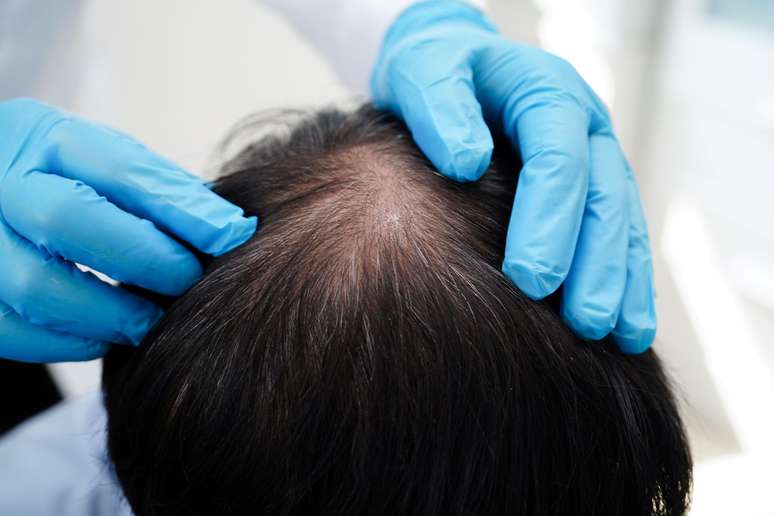The approval of the proposed constitutional amendment will make it difficult for blacks to access politics. A setback in Brazilian democracy
August 2024 will go down in history as the month of the severe blow to Brazilian democracy. The National Congress enacted, last Thursday, the 22nd, the Constitutional Amendment Proposal 09/2023, signed by Deputy Paulo Magalhães (PSD/BA) and others. Called Amnesty PEC, the amendment causes many obstacles in the recent effort to reduce inequalities and make the electoral process fairer in Brazil. In addition to authorizing the refinancing of debts of parties and their foundations incurred in the last five years, with full exemption from fines and accrued interest, the PEC also pardons parties that could not (or did not want to) reach the minimum quota of resources allocated to black and female candidacies in the last elections.
To make matters worse, the constitutional amendment reduces mandatory resources for black candidates in future elections, increasing the mandatory percentage of resources from campaign and party funds that must be allocated to black candidates from the current 50% to 30%.
The new rules are now in effect for this year’s municipal elections, which will certainly have less impact on the diversity in the composition of chambers and municipalities across Brazil.
Reduce what was already low
The presence of women and people of color in political positions is still lower than the percentage of these groups in the Brazilian population. Historically, black and women’s movements have sought to increase representation in institutional politics. In 2022, the Coalition for Black Rights launched Quilombo in parliaments to support black candidates for the National Congress and legislative assemblies across the country.
Recent data from the Superior Electoral Court indicates that black candidates represent 52% of the total number of candidates who will run in municipal elections in Brazil. According to the TSE, of a total of 456,310 registered applications, 155,000 are from women and 301,310 from men. Of these gender totals, 74,355 are non-black women, 80,645 black women, 159,942 black men, and 141,368 non-black men.
However, a significant number of these demands may not be achievable due to lack of funding. Economic power, if not decisive, is one of the most decisive factors in a campaign being victorious. Although there has been an increase in the number of Black and female candidates in recent years, these groups are still underrepresented in legislative and executive positions. Research generally indicates that this underrepresentation remains, to a large extent, due to inequality in access to resources, between men and women; black and white; cisgender and transgender.
In order to make the political conflict more balanced, the Superior Electoral Court (TSE) ruled that black candidates are entitled to public funds, proportionally, for the financing of electoral campaigns and for free electoral advertising on radio and television. Resolution 23,665, of December 9, 2021, provides for the division of resources for black and female candidates.
However, in the 2022 elections, when black candidates represented 50%, black candidates reported not receiving the payments they were owed, as I revealed in an article for the Estado de Minas newspaper (“I feel used,” says MDB candidate about black funds). Faced with the blatant disrespect towards black candidates, the injured candidates hoped that this failure by the parties could be punished in some way.
Two years later, the National Congress mobilized so that parties could be forgiven for not using proportional representation in the candidacies of blacks and women.
PEC 09 provides amnesty to political parties, as it forgives debts for failure to apply proportional resources to black and brown candidates in the 2022 elections. It also allows parties to use Party Fund resources to pay fines and other penalties for non-compliance with electoral law and non-electoral debts – which is absurd.
The approval of Amnesty’s PEC shows how political parties have worked together on this issue to their advantage, contributing to reducing diversity in politics. In this sense, the Brazilian Bar Association has classified the Amnesty PEC as an attack on democracy in Brazil.
“The OAB SP deeply regrets the approval of PEC 09/2023, popularly known as “PEC da Amnestia”, which harms the presence of blacks in Brazilian politics. This is the fourth time that parties have amnestied themselves in relation to their obligations in the distribution of public resources to promote a more diverse democracy in the country,” the organization said in a statement.
The Peregum Black Reference Institute rejected the reduction of resources for black candidates, approving 30% of this funding, ignoring the idea of proportionality.
Brazilian democracy is weakened because it keeps the institutional space of politics controlled mainly by a single group, white, cis, straight, wealthy men. A small increase in representation already changes the face of parliament, as can be seen in the Legislative Assembly of Minas Gerais
And it is not an exercise in futurology to predict the impact of the PEC Amnesty on the representation of the legislative chambers, which will surely become less diverse. Representation means inclusion of marginalized groups in public policies and budgets. To illustrate, I would like to take as an example the black female deputies of the Legislative Assembly of Minas Gerais, which has never been as black as on August 19, 20 and 21, 2024. Representatives of black movements, artists, teachers from all over the state participated in the final phase of the workshops on the Statute of Racial Equality of Minas. The legislation was presented by four black deputies: Andreia de Jesus, Leninha and Macaé, from the Workers’ Party, and Ana Paula Siqueira (Rede).
For the first time in the 190-year history of the Minas Gerais parliament, four black MPs were elected, one of whom holds the vice presidency of the ALMG. Of the 77 seats, only four are occupied by black women, a fact that is on the one hand to be celebrated, because until a few years ago there were none, but which shows that there is still underrepresentation if we compare the percentage with that represented by the group of black women in the population of Minas Gerais.
Amnesty’s PEC will not prevent black men and women from entering politics. But it is a surprising setback that will once again make the political trajectory of these segments of the population more difficult than that of white, male candidates.
Marcia Maria da Cruz does not consult, work for, own shares in, or receive funding from any company or organization that could benefit from the publication of this article and has disclosed no relevant connections beyond her academic position.
Source: Terra
Rose James is a Gossipify movie and series reviewer known for her in-depth analysis and unique perspective on the latest releases. With a background in film studies, she provides engaging and informative reviews, and keeps readers up to date with industry trends and emerging talents.







